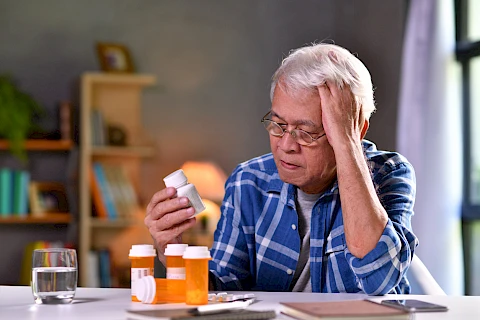
April is recognized as Medication Safety Month, making it a prime time to highlight the importance of medication safety, particularly for our senior community. Medication plays a crucial role in maintaining health and managing various medical conditions. An often-overlooked aspect of medication safety pertains to the use of expired medicines.
This article discusses what happens to multiple medications as they reach and pass their expiration dates. With a focus on common medications typically used by seniors, we provide a comprehensive guide on the potential effects and risks of using expired medications. Our goal is to help ensure your safety and well-being by providing vital information about the ramifications of using expired medications.
What You Need to Know About Medication Expiration Dates
Medication expiration dates represent the final day the manufacturer can guarantee a medication's full potency and safety. They determine these dates through stability testing, which assesses how long a drug retains its quality under various environmental conditions such as humidity, light, and temperature. The Food and Drug Administration (FDA) determines and regulates the expiration dates to ensure consumer safety.
What Happens When Medication Expires?
When medications reach their expiration dates, the active ingredients can start to break down. The medication may not only lose its effectiveness but might also undergo chemical changes. While most expired medications are generally not harmful, some can pose potential risks, especially if used to treat critical or life-threatening conditions where full potency is required.
Common Medications Used by Seniors and Their Expiry Effects
Many seniors commonly use medications such as aspirin for heart health, statins for cholesterol, and various blood pressure medications. When these medications expire, their active ingredients may lose potency. For example, an expired statin might not effectively lower cholesterol levels, risking cardiac health. Similarly, expired blood pressure medication might not control hypertension as efficiently, potentially leading to severe complications.
The Risks of Using Expired Medications
Using expired medications can pose risks. The reduced efficacy can lead to suboptimal control of the underlying disease or condition. For instance, using expired antibiotics could fail to clear an infection, giving rise to antibiotic-resistant bacteria. Further, certain expired medications could change their composition over time, potentially producing harmful products or causing adverse reactions.
Proper Disposal of Expired Medications
Proper disposal of expired medications is crucial to prevent accidental ingestion or misuse. It's generally not advisable to flush medications down the toilet or sink, as this causes environmental problems. Instead, one should check if their local pharmacy or healthcare facility provides take-back programs.
We're Here to Help
Medication safety is a paramount concern, especially for seniors who often depend on various drugs for their well-being. It's essential to avoid using expired medications, no matter how insignificant the potential effects might seem. Always monitor your medication's expiry dates and properly dispose of them once they expire.
If you reside in Allentown, Bethlehem, Nazareth, Whitehall, or Schnecksville and seek support caring for your senior family member, we invite you to contact us at Senior Helpers Lehigh Valley today. We would love to discuss our services for seniors and their caregivers, such as Personal Care and Chronic Disease Care.